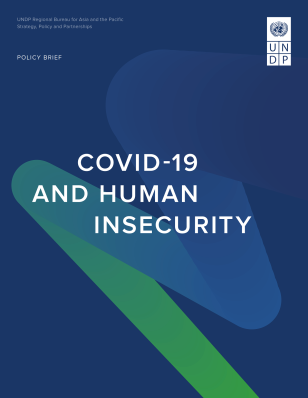COVID-19 and Human Insecurity

COVID-19 and Human Insecurity
November 25, 2021
Threats to many aspects of human lives by the COVID-19 pandemic in the Asia-Pacific Region have highlighted the importance of public preparedness and protection of human security. This paper explores how governments can safeguard multiple dimensions of human security, including ending deprivations, upholding rights and freedoms, protecting people from uncertainties and unpredictable events, and creating a strong foundation of human development. In order to strengthen human security across the region, it is important to recognize the importance of embedding values, enhancing capabilities, and promoting agency. The State needs to play an active role in protecting its people–especially vulnerable populations, such as women, those who are impoverished, people with disabilities, ethnic or religious minorities, children and the elderly–from lack of steady income, hunger, a lack of medical access and means of paying for it, abuse, persecution and discrimination. Governments must play a proactive role in promoting human security by providing sufficient protection against downside risks. Three concerns should be at the forefront of future action: the role of the state vis-à-vis the private sector in the provision of basic social services; forming strategies to ‘leave no one behind’ rather than focusing only on economic growth; and promoting a more active engagement with the public to ensure greater involvement of different stakeholders in public decision-making. Nations need to re-envision their human development strategies to prioritize building resilience and empowerment that can overcome insecurities, especially in the event of future unforeseen crises, like the COVID-19 pandemic.

 Locations
Locations